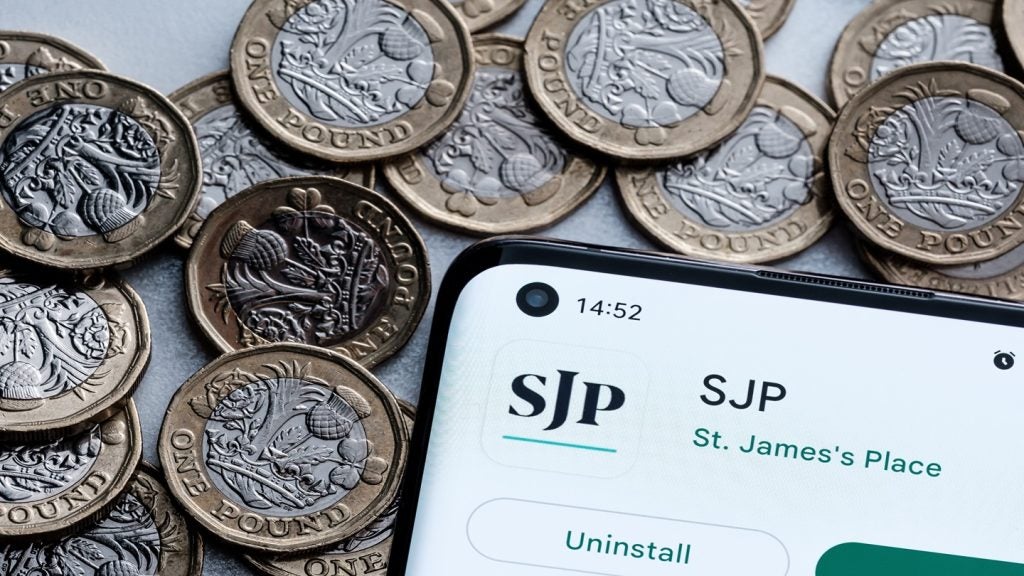 Private banks shaken by having
Private banks shaken by having
the identities of their clients passed to regulators and police,
are starting to repair the damage to their reputations and asset
levels.
One of the biggest casualties, LGT,
the “house bank” of the Liechtenstein royal family, has started to
attract new money again after two years of client outflows.
It saw inflows of CHF1.1bn ($1.1bn)
of net new money from clients, chiefly from its asset management
and foreign operations, including its growing Asian business, in
the first six months of 2010.
LGT outflows
slow
Client assets totalling CHF1.6bn
flowed out in the first half of 2009 and outflows totalled CHF3.7bn
for the whole of last year.
How well do you really know your competitors?
Access the most comprehensive Company Profiles on the market, powered by GlobalData. Save hours of research. Gain competitive edge.

Thank you!
Your download email will arrive shortly
Not ready to buy yet? Download a free sample
We are confident about the unique quality of our Company Profiles. However, we want you to make the most beneficial decision for your business, so we offer a free sample that you can download by submitting the below form
By GlobalDataBut some money continued to “leak”
away in the first half from its home base of Liechtenstein. The
principality has been forced to ease banking secrecy in order to
avoid attacks by neighbour Germany and other countries determined
to bring tax havens into line, LGT officials confessed.
Clients of LGT were un-nerved after
data from a stolen disk led to a German tax investigation into the
bank in 2008 and the subsequent trials of prominent German
businessmen for tax evasion.
LGT chief executive Prince Max von
und zu Liechtenstein, said the bank was pleased it had managed to
reverse the trend in terms of net new money, and it expected the
positive inflows to continue in the second half of the year.
Stung by data
theft
HSBC Private Bank in Switzerland, which was hit by the data
theft of some 25,000 accounts, reported net new money flows of
CHF4.9bn in the first half of 2010. Money flowing in from Asia more
than offset net redemptions of CHF600m from Europe and Israel.
Tax information from stolen data is being investigated by
authorities in France, Spain and Italy. The chief executive of the
Geneva-based bank, Alexandre Zeller, said that he aims to reverse
their outflows by 2011.
The bank most badly damaged by
whistle blowing, UBS, saw clear signs that the withdrawal of client
money is slowing. In the second quarter, clients took out CHF5bn
from the wealth and asset management units, the lowest level since
UBS started to haemorrhage client assets early in 2008.
Whistleblowing
fallout
The outflow was sharply down from
outflows of CHF18bn in the first quarter (for full analysis,
see Can UBS’s PR offensive win back clients?
and UBS and Citi take brand
battering).
Former UBS banker Bradley
Birkenfeld is now serving a 40-month term in a US jail. The
whistle-blower’s disclosures led to the discovery of the US tax
fraud against the bank culminating in a $780m federal fine.
UBS has also been forced to
drastically curtail its US business. Swiss financial regulator
Finma said the bank is on track to meet its obligations to withdraw
from offshore banking with American clients.
Julius Baer battles with
Wikileaks
Bank Julius Baer was also hit by a
whistle-blowing attack. It mounted a lawsuit in 2008 against
website wikileaks.org
which had posted confidential bank documents.
Baer was at first successful in
getting a US district judge to order the site shut down. But the
judge reversed his decision amid an outcry in the US over the
implications for free speech.
Baer did not see a big outflow of
funds, but the private banking industry has become much more
careful over the origin of client funds. In Germany, Baer is giving
every German client an account tax statement and may extend the
practice to other offshore account holders.
Meanwhile, it looks as if banking and finance generally will see
a rise in the levels of corporate whistle blowing.
The new US financial reforms mean staff reporting corporate
fraud will be entitled to a share of any resulting settlement. The
Dodd-Frank Reform Act allows for corporate whistle blowers to
obtain up to 30% of settlements – potentially worth many millions
of dollars for major cases.







